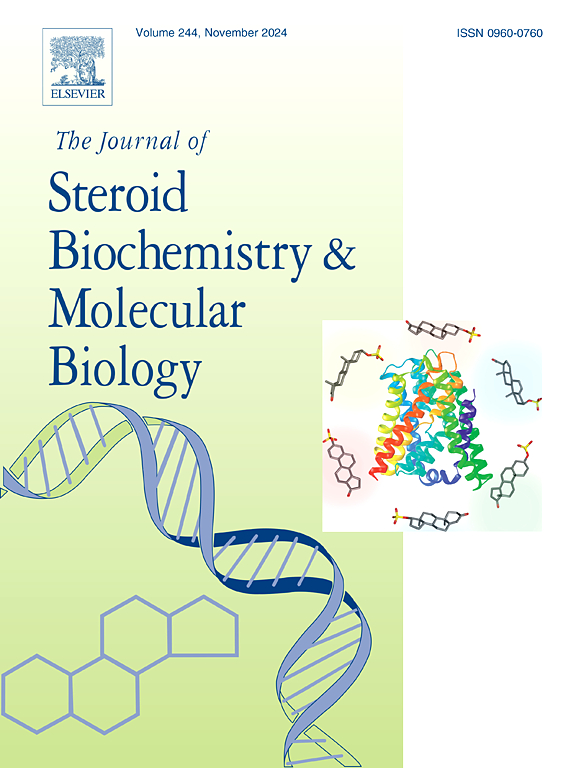在随机对照D-健康试验中补充维生素D对癌症发病率的影响:对政策和实践的影响。
IF 2.7
2区 生物学
Q3 BIOCHEMISTRY & MOLECULAR BIOLOGY
Journal of Steroid Biochemistry and Molecular Biology
Pub Date : 2025-03-15
DOI:10.1016/j.jsbmb.2025.106738
引用次数: 0
摘要
荟萃分析表明,补充维生素D可以降低癌症死亡率。由于死亡率是发病率和生存率的函数,如果使用维生素D补充剂确实降低了癌症死亡率,那么它一定会影响其中一个或两个参数。试验几乎没有发现补充维生素D会影响癌症发病率的证据,但结果通常是不精确的。我们分析了D-Health试验的数据,这是一项随机对照试验,每月服用60000国际单位的维生素D3或相匹配的安慰剂。21,315名年龄在60-85岁之间的成年人被招募并补充了长达5年的时间。我们通过与州癌症登记处的联系来获取癌症诊断。该分析包括21,308名参与者(维生素D, n=10,660;安慰剂,n = 10648)。在维生素D组和安慰剂组中,被诊断患有至少一种癌症(不包括角质细胞癌)的参与者人数分别为1336人和1304人。我们发现两组之间的癌症发病率没有差异(HR 1.02;95% ci 0.95-1.10)。同样,当排除皮肤黑色素瘤时,差异很小(HR 1.04;95% ci 0.95-1.14)。对个别癌症(前列腺癌、乳腺癌、结肠直肠癌、肺癌、黑色素瘤)的分析没有显示维生素D有任何影响,尽管置信区间相对较宽。这些结果提供了令人信服的证据,证实维生素D对癌症发病率总体上没有影响。对发病率和死亡率的影响之间的脱节意味着对癌症存活率的影响。确定癌症诊断之前或之后的维生素D水平是否对生存有任何好处将是极具挑战性的——事实上,这可能是不可能的。因此,现在应该考虑是否应该推荐全人群补充或癌症患者补充。本文章由计算机程序翻译,如有差异,请以英文原文为准。
The effect of vitamin D supplementation on cancer incidence in the randomised controlled D-Health Trial: Implications for policy and practice
Meta-analyses suggest that vitamin D supplementation reduces cancer mortality. As mortality is a function of incidence and survival, if use of vitamin D supplements does reduce cancer mortality, it must affect one or both of these parameters. Trials have found little evidence that vitamin D supplementation affects cancer incidence, but results were generally imprecise. We analysed data from the D-Health Trial, a randomised controlled trial of 60,000 IU of vitamin D3 per month or matching placebo. 21,315 adults aged 60–85 years were recruited and supplemented for up to 5 years. We captured cancer diagnoses through linkage to state cancer registries. This analysis included 21,308 participants (vitamin D, n = 10,660; placebo, n = 10,648). The number of participants diagnosed with at least one cancer (excluding keratinocyte cancers) in the vitamin D and placebo groups was 1336 and 1304, respectively. We found no difference in cancer incidence between the two groups (HR 1.02; 95 % CI 0.95–1.10). Similarly, there was minimal difference when cutaneous melanomas were excluded (HR 1.04; 95 % CI 0.95–1.14). Analyses of individual cancers (prostate, breast, colorectal, lung, melanoma) did not demonstrate any effect of vitamin D, although the confidence intervals were relatively wide. These results provide convincing evidence to confirm the lack of effect of vitamin D on cancer incidence overall. The disconnect between effects on incidence and mortality would imply an effect on cancer survival. Determining whether any survival benefit is driven by vitamin D status prior to or after cancer diagnosis will be extremely challenging – indeed it may not be possible. Thus, it would be reasonable to consider whether population-wide supplementation or supplementation of cancer patients should be recommended now.
求助全文
通过发布文献求助,成功后即可免费获取论文全文。
去求助
来源期刊
CiteScore
8.60
自引率
2.40%
发文量
113
审稿时长
46 days
期刊介绍:
The Journal of Steroid Biochemistry and Molecular Biology is devoted to new experimental and theoretical developments in areas related to steroids including vitamin D, lipids and their metabolomics. The Journal publishes a variety of contributions, including original articles, general and focused reviews, and rapid communications (brief articles of particular interest and clear novelty). Selected cutting-edge topics will be addressed in Special Issues managed by Guest Editors. Special Issues will contain both commissioned reviews and original research papers to provide comprehensive coverage of specific topics, and all submissions will undergo rigorous peer-review prior to publication.

 求助内容:
求助内容: 应助结果提醒方式:
应助结果提醒方式:


